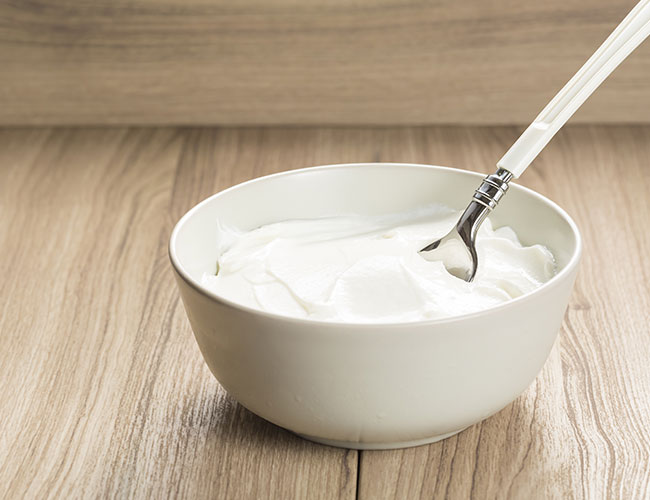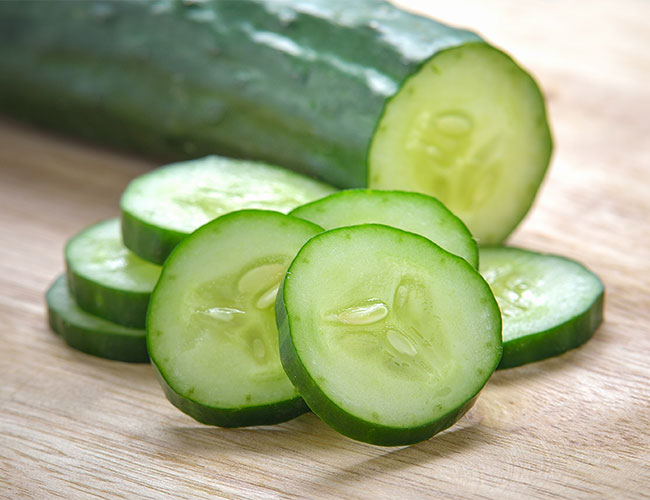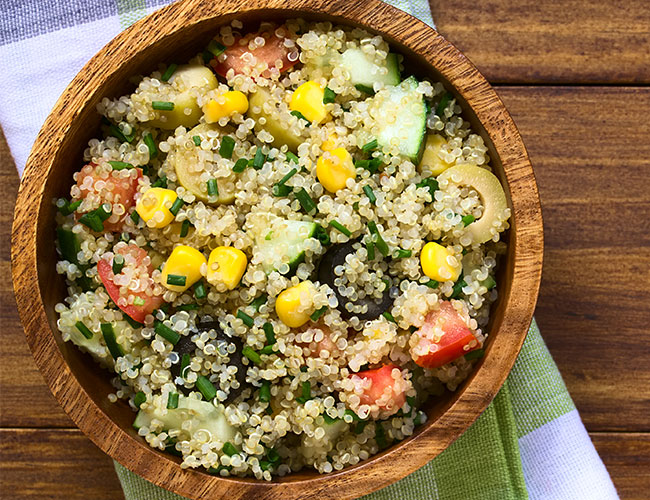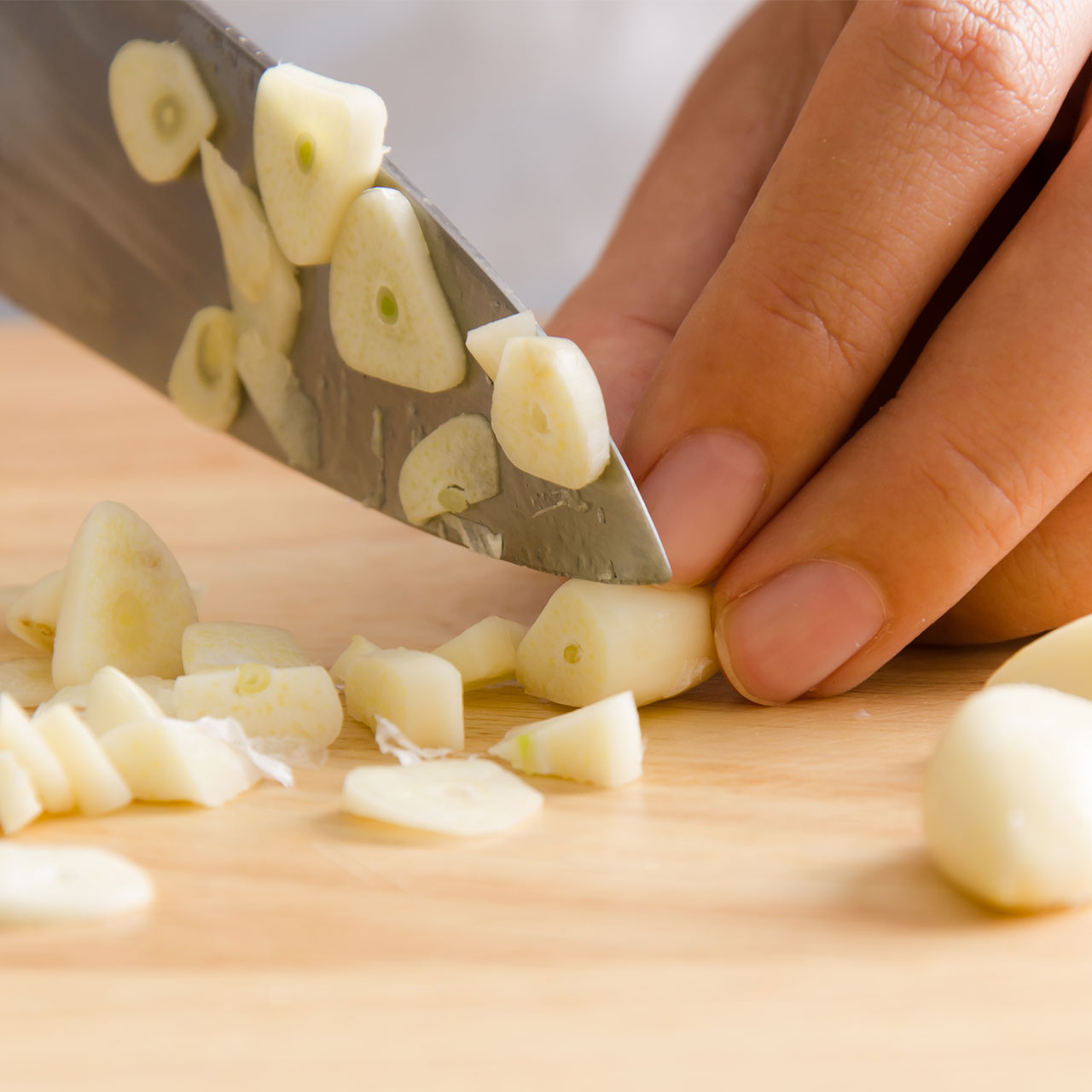There’s nothing quite like eating a delicious dinner after a long and tiring day. With all the work that’s been done–whether it be in the office, at home, or in school—you deserve to treat yourself with a good meal. However, if you’re trying to lose weight, you do want to still be mindful of what you eat. You definitely don’t want to make poor choices that would lead to defeating your weight loss efforts, or adversely, that would make you feel worse in the morning. Take for example, bloating.
So, which foods exactly should you eat during dinner time to avoid morning bloat? We asked nutritionist Carrie Gabriel, MS, RDN, and registered dietitian and nutritionist Katie Tomaschko, MS, RDN, to find out. Keep reading to learn more about anti-bloating foods and healthy eating tips especially for nighttime.


Yogurt
Before anything else, Tomaschko clarifies that "it is very important to understand that we are all vastly different, and that one food may help someone immensely while it may do the opposite for another." She notes, "Generally, eating foods high in fiber (like avocados, sweet potatoes, and whole grains) and water content (like watermelon, cucumber, celery, etc.) can help with [gastrointestinal] symptoms such as bloating."
According to Tomaschko, "One [food] that is particularly [known] to help reduce bloat is yogurt. This is largely due to the probiotics in yogurt. Probiotics are excellent for gut/digestive health. [They] have been shown to reduce bloating and abdominal distension caused by conditions like irritable bowel syndrome (IBS)."
She emphasizes, "Now, of course, yogurt may not be ideal for everyone–especially those with a lactose intolerance or who follow a vegan diet. So again, we are all very different."

Cucumber
"Adding cucumber to a salad at dinner time is also a wise choice for beating bloat," says Gabriel. "Cucumber's high water content, about 95 percent, is great for keeping the bloat away by hydrating our bodies. Dehydration can cause bloat and water retention."
Aside from cucumber, Gabriel also recommends other vegetables like asparagus and fennel. She shares, "Not only is asparagus a great source of fiber, but it has prebiotic fiber called inulin, which is also known to support overall gut health and increase regularity. [As a result], this aids in the prevention of bloating."
Additionally, Gabriel also mentions, "If you decide to have a salad [for] dinner, adding some fennel to it can aid in the prevention of gas and bloating as well. Fennel is known for relaxing the muscles in your gastrointestinal tract, providing some relief from gas and bloating." She further advised that when it comes to preparing fennel, it is great raw or cooked.

Quinoa
As per Gabriel, "Quinoa is another food that might be worth a shot at the dinner table if you find yourself bloating from grains like pasta or bread. Keep in mind that bloating from regular pasta and bread can also signify a gluten intolerance or sensitivity. Even if you are not on a gluten free diet, quinoa is rich in fiber and antioxidants that help fight off inflammation, which causes bloating."
Nighttime Healthy Eating Tips
Tomaschko warns, "Habits such as eating a large meal right before bedtime, lying down flat right after eating, eating a meal high in spice and/or acidity, and drinking carbonated and/or alcoholic beverages can all attribute to morning bloat."
She suggests, "Try eating meals at least two to three hours before bed time, sitting up or reclining at a 45-degree level (not all the way flat) after eating, and limiting alcohol and carbonated beverages before bedtime to help improve morning bloat symptoms."
According to Gabriel, "Ideally, making your dinner meal full of quality protein and fiber should keep you fuller for a longer period of time and can help prevent mindless snacking later in the evening. Also, getting enough quality sleep is important." She points out that there are times when we interchange the feeling of being tired for being hungry, so getting a good night's rest is crucial so that your body can differentiate the two.
To conclude, Gabriel says, "If you are legitimately hungry at night before bed, you should eat something or you might not be able to sleep! Oatmeal with some nut butter, eggs with a slice of whole grain toast, or some plain Greek yogurt with berries are all good ideas because they contain sleep supportive compounds like tryptophan and serotonin, and magnesium and calcium."


























